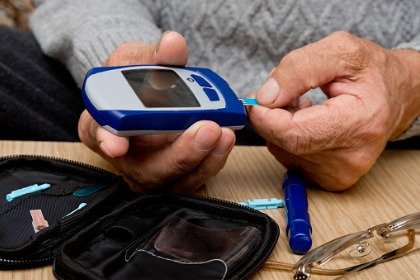Diving Into the "Dawn Phenomenon” and the Best (and Worst) Times to Eat Carbs
In a hurry? Click here to read the Article Summary...
Perhaps you’ve read all the literature about keto, low carb, and no carbs diets and well… you’re just not ready to give up that weekly pasta night at your favorite Italian joint. At the same time, you want to be smart about your diet decisions too. Perhaps you have diabetes or pre-diabetes and are experiencing the tricky symptoms of the “Dawn Phenomenon” (more on that below).
Or maybe you simply want to prevent disease and live a healthier, more vibrant life. Whatever your situation, there is a way to balance insulin levels, have a clear, focused mind, and make carbs work for you (and not against your waistline). The first step is to be strategic about when you eat… just as you are about what you eat.
What Is the Dawn Phenomenon?
The Dawn Phenomenon has a few other names including “Dawn Effect” (DE), Rebound Hyperglycemia, Liver Dump, and Diabetic Hyperglycemic Hyperosmolar Syndrome (HHS).
Whatever you call it, the condition is the same. It’s defined as an abnormally high early-morning increase in blood glucose levels, or blood sugar, that occurs – especially in people with Type 2 diabetes [1].
When pre-dawn blood sugar spikes because of mismanagement or a change in a person’s diabetes routine (such as changing the time for insulin injection or a change in medication), this is called the Somogyi effect. The harmful outcomes for both conditions are the same, however.
The fact is that everyone experiences the Dawn Phenomenon – i.e., a rise in blood sugar overnight – to some degree. During the day, most of the carbohydrates we eat get converted into glucose in the bloodstream. We use this glucose for energy to keep our bodies going and our mind sharp throughout the day.
Some of this glucose, however, goes to the liver, where it is stored for future use. Between 2 a.m. and 8 a.m., while most people  are naturally “fasting” (due to being asleep), the body releases a series of hormones.
are naturally “fasting” (due to being asleep), the body releases a series of hormones.
These hormones include growth hormone, cortisol, epinephrine, and glucagon. You may have heard of some of these before in association with the stress response.
These substances work as “counter-regulatory hormones” (hormones that work to oppose other hormones). Together they increase blood glucose by decreasing movement of this substance into the bloodstream. This keeps us fueled as we “rest and restore” our major organs during sleep.
For healthy individuals, the amount of glucose that is released is matched by the glucose that is used at night. This means that for most people, the Dawn Effect is pretty much something that goes unnoticed.
What Causes the Dawn Phenomenon?
For people with diabetes, the “Dawn Effect” can have some dire consequences, depending on the severity. Irregularities in nighttime insulin levels indicate a dysregulation in metabolism.
As insulin levels drop severely, the body rushes to produce insulin and other hormones in order to right the balance, flooding the blood with glucose that the cells cannot absorb. The result is “Rebound Hyperglycemia,” or DE.
Early Warning Signs of DE
The early warning signs of the Dawn Effect are the same as those who suffer from hyperglycemia. These early warning signs may include:
- Headaches
- Brain fog/ trouble concentrating
- Blurred vision
- Frequent need to urinate
- Fatigue
- Increased thirst
The long-term effects of hyperglycemia, however, are what you should be especially concerned about. If left unchecked, these may include:
- Skin infections
- Vaginal infections in women
- Erectile dysfunction in men
- Nerve damage
- Kidney damage
- Damage to the eyes
- GI tract issues, including chronic diarrhea and/or constipation
Checking for High Blood Sugar Levels
 If you suspect that you may be experiencing the negative side of the Dawn Effect, the first step your doctor may advise is a simple at-home blood sugar test.
If you suspect that you may be experiencing the negative side of the Dawn Effect, the first step your doctor may advise is a simple at-home blood sugar test.
Be sure to check at different points during the day in addition to first thing in the morning to get a good accounting of your blood sugar levels. The Mayo Clinic suggests testing sugar levels once in the middle of the night (around 3 a.m.) for about a week straight [2]. This should give you a good indication as to whether or not you have a trend of blood sugar spikes pre-dawn.
Finally, according to the Diabetes Council [3], a non-diabetic person should maintain blood sugar levels of between 80 – 99 mg/dl (4.4-5.4 mmol/L).
Adults and children with either Type 1 or Type 2 diabetes should have blood sugar levels ranging from 80 – 130 mg/dl (4.4-7.2 mmol/L) first thing in the morning. Anything higher than 130 could indicate pre-dawn sugar imbalance.
What If I Don’t Have Diabetes?
If you have diabetes or are pre-diabetic, the Dawn Effect is something you may want to watch out for, and even test for periodically. But people with diabetes are NOT the only ones who may suffer the consequences of sugar imbalance.
YOU may experience “The Dawn Effect” if you:
- Eat a big meal with lots of carbs right before bedtime
- Are under a lot of stress [4]
- Have another health condition
- Are pre-diabetic
When Is the Best Time to Eat Carbs?
Hands down, one of the go-to remedies to keep the Dawn Effect at bay for both diabetics and non-diabetics is to not eat high-carb meals or snacks just before bed.
The reason for this should be self-explanatory. The more refined carbs you consume, the more get converted into glucose that will be stored in your liver and released into your blood in the middle of the night.
If you eat a lot of carbs late at night, more than likely you will not be engaging in much activity (or any at all, for that matter) that will allow you to burn it off before you turn out the light.
Breakfast or No Breakfast?
There is still debate, however, as to what to do first thing in the morning to balance sugars upon waking and throughout the day. In fact, experts are split down the middle on everything breakfast-food related, from what to eat in the a.m. to whether you should eat anything at all.
Many in the conventional medical establishment still recommend eating carbs in the morning to avoid what they call the “second meal effect [5].”
They state that eating carbs in the morning helps you to better process them throughout the day, namely at lunch and dinner. They cite studies such as a 2015 investigation conducted at Tel Aviv University which state that not eating breakfast at all can impair insulin response in diabetics [6].
Other studies claim that eating even sugary carbs in the a.m. can help maintain energy all day long. Suspiciously, many of these kinds of studies are funded by cereal companies [7].
What About Intermittent Fasting?
A growing number of experts are going against conventional wisdom altogether, stating that breakfast may NOT be the “most  important meal of the day [8]” after all and advocate intermittent fasting, which often means pushing the first meal of the day back several hours after waking.
important meal of the day [8]” after all and advocate intermittent fasting, which often means pushing the first meal of the day back several hours after waking.
Indeed, a 2014 study [9] published in the American Journal of Clinical Nutrition found that in close to 300 overweight and obese adults, skipping breakfast altogether did not affect weight.
Making the Best Choice for Your Body
We get it. You just want to eat in a healthy, balanced way to keep blood sugar stable, have enough energy for all that you have to do, and maybe even lose a few pounds along the way.
So how do you decipher all these seemingly opposing views when it comes to carbs and breakfast?
Putting those questionable cereal company-funded studies aside for a moment, no real expert worth their weight will say that loading up on refined carbs and sugar as soon as you get out of bed is a good thing. Even mainstream medical databases such as HealthLine [10] suggest staying away from the cereal, breakfast bars, and pancakes in the morning – even if you’re not diabetic.
Our suggestion is to let common sense lead the way. Then go by how YOU feel.
If you are doing breakfast, opt for a balanced meal with plenty of protein and fiber and make sure it comes from whole foods. Then notice the results regarding your energy and other factors.
And if you are a relatively healthy adult, try holding off on breakfast for a few hours once or twice and see how you feel. An increasing number of studies are discovering the benefits of intermittent fasting (IF), or going without food for at least 14 hours, including sleep time.
A 2012 study [11] published in the journal Nutrition Research found that healthy individuals practicing fasting during Ramadan had increased immune system cell growth and lowered proinflammatory cytokines overall.
Some people’s bodies thrive on skipping breakfast. Others don’t feel right unless they eat a healthy meal right away. Through gentle experimentation, you can let your body guide you as to what is best for YOU when it comes to regulating the “Dawn Effect” and getting the most nutrition and energy out of what you eat to keep you going all day.
Organixx Enzyme 17 contains a whopping FIVE kinds of powerful protease enzymes in combination with one of the most advanced enzyme blends on the planet. It’s scientifically designed to help your body break down and process nutrients for better absorption, digestion, and overall health.

 Sources:
Sources:
Article Summary
The Dawn Phenomenon (aka Dawn Effect) is an abnormally high early-morning increase in blood glucose levels or blood sugar – especially in people with Type 2 diabetes.
For most people, the Dawn Phenomenon mostly goes unnoticed. But for people with diabetes it can have some dire consequences, depending on the severity.
The early warning signs of the Dawn Effect are the same as those who suffer from hyperglycemia. The long-term effects of hyperglycemia are concerning and include:
- Skin infections
- Vaginal infections in women
- Erectile dysfunction in men
- Nerve damage
- Kidney damage
- Damage to the eyes
- GI tract issues, including chronic diarrhea and/or constipation
People with diabetes are NOT the only ones who may suffer the consequences of sugar imbalance. You may experience “The Dawn Effect” if you:
- Eat a big meal with lots of carbs right before bedtime
- Are under a lot of stress
- Have another health condition
- Are pre-diabetic
If you suspect that you may be experiencing the negative side of the Dawn Effect, the first step your doctor may advise is a simple at-home blood sugar test.
Advice for keeping the Dawn Effect at bay for both diabetics and non-diabetics includes not eating high-carb meals or snacks just before bed.
Some people’s bodies thrive on skipping breakfast while others don’t feel right unless they eat a healthy meal right away. Experiment and let your body guide you as to what feels best for YOU.




Thanks for the information. Snacking is my problem, just choose a better snack from now on.
That's the spirit, Danny! We wish you the best in your journey towards mindful and clean eating.
Resistant starch & vegan diet has fixed 40yrs of the blood sugar rollercoaster for this mechanic. ..
That's interesting! Thanks for sharing this with us, DD.
Thank you Mr.Hunsaker for all the knowledge.Be always blessed....
Thank you for the kind words, Jim!
(DD, I would like to know what 'resistant starch means., please?